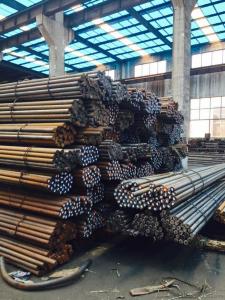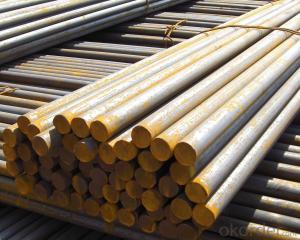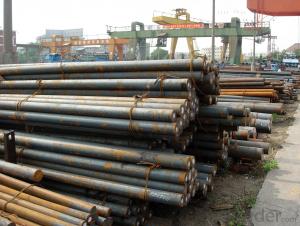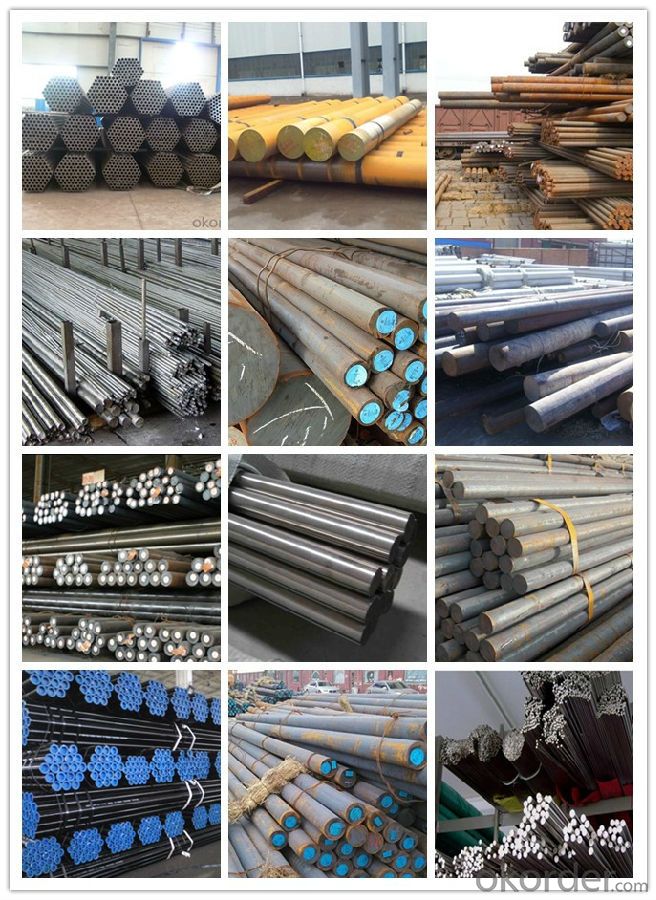Deformed Steel Bar HRB335 Construction Rebar
- Loading Port:
- China main port
- Payment Terms:
- TT or LC
- Min Order Qty:
- 30 m.t.
- Supply Capability:
- 10000 m.t./month
OKorder Service Pledge
OKorder Financial Service
You Might Also Like
Item specifice
Product information:
| Commodity: | High quality hot rolled ribbed bar, Steel rebar, Deformed bars, Deform rebar |
| Standard & Grade: | GB1499-98 : HRB335,HRB400,HRB500 |
| BS4449-1997 : GR460B,GRB500B | |
| CAN/CSA-G30.18-M92 : 400W | |
| AS/NZS4671-2001 : GR300E, GR500E | |
| JIS G3112-2010 : SD345,SD390,SD490 | |
| ASTM A615 : Gr.40, Gr.60 | |
| DIN488-1984 : BST500 | |
| KS D 3504 : SD400 | |
| Diameter: | 6mm - 50mm |
| Length: | 6m,9m,12m |
| Packing: | Bundle packing |
| Origin: | China |
| Application: | Construction,Road,Machinery processing,Welding fields. |
| Delivery time: | 10-25 days |
| Shipment: | By bulk vessel or Container |
| Documents: | Mill Test Certificate,Commercial Invoice,Packing List,Certificate of Origin |
Product show
Workshop show
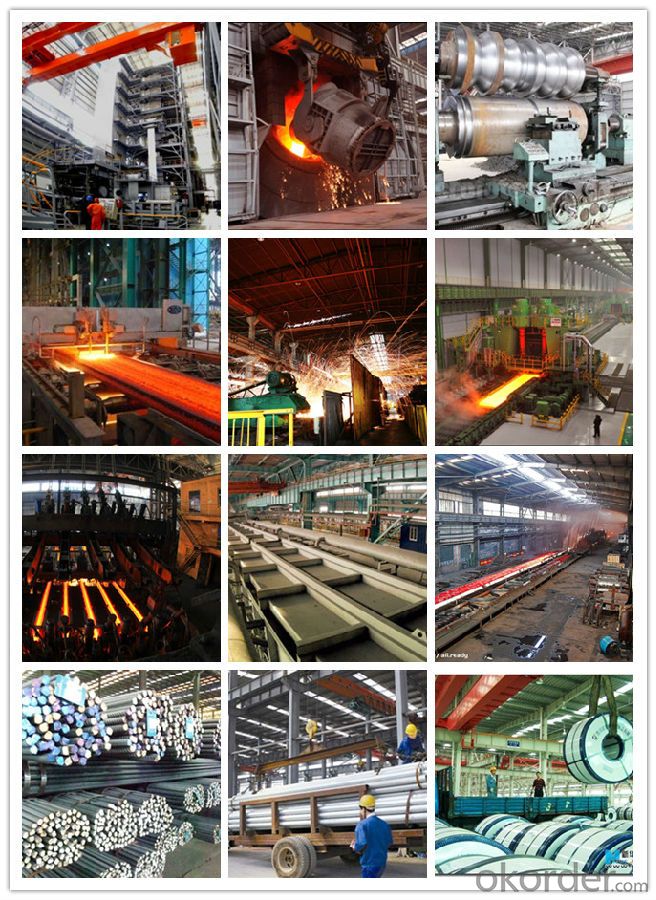
Shipping
1. FedEx/DHL/UPS/TNT for samples, Door-to-Door;
2. By Air or by Sea for batch goods, for FCL; Airport/ Port receiving;
3. Customers specifying freight forwarders or negotiable shipping methods!
Delivery Time: 3-7 days for samples; 5-25 days for batch goods.
Payment Terms
1.Payment: T/T, L/C, Western Union, MoneyGram,PayPal; 30% deposits; 70% balance before delivery.
2.MOQ: 1pcs
3.Warranty : 3 years
4.Package Informations: 1) EXPORT, In 20 feet (GW 25 ton) or 40 feet Container (GW 25 ton)
2)as customer's requirement
Why choose us?
(1) The leading exporter in China special steel industry.
(2) Large stocks for various sizes, fast delivery date.
(3) Good business relationship with China famous factories.
(4) More than 7 years steel exporting experience.
(5) Good after-sales service guarantee.
Screw steel is a steel bar with ribs on the surface, also known as ribbed bars, usually with 2 longitudinal ribs and transverse ribs evenly distributed along the longitudinal direction. The transverse rib shape is helical, herringbone, crescent 3. Nominal diameter of mm. Nominal diameter equal to the nominal diameter of the circular steel bars of equal cross section. The nominal diameter of the steel bar is 8-50 mm. The recommended diameter is 8, 12, 16, 20, 25, 32, 40 mm. Tensile stress in concrete with ribbed steel bars. Ribbed steel bar because of the role of ribs, and concrete have a larger bond capacity, and thus can better withstand the role of external forces. Ribbed steel bars are widely used in various building structures, especially large, heavy, light, thin wall and high rise building structures.
Thread steel is widely used in building, bridge, road and other civil engineering construction. Highways, railways, bridges, culverts, tunnels, flood control, dam etc. utilities to large, the small building foundation, beams, columns, a wall, a slab, rebar is indispensable structural materials.
This is the mechanical properties of thread steel grade and size specifications of the method.
H, R, B are hot rolling (Hotrolled), ribbed (Ribbed), steel (Bars) three words of the first letter in english.
HRB behind the figures, said its production level for the mechanical properties of materials, specific value is the material yield strength sigma S (sigma 91). Such as:
HRB335, which indicates that the yield strength is 335MPa of the rebar.
- Q:How does special steel perform under low temperatures?
- Special steel performs well under low temperatures due to its high ductility, toughness, and resistance to brittleness. It retains its strength and structural integrity, making it ideal for applications in extreme cold environments such as cryogenic storage, sub-zero manufacturing, and Arctic exploration.
- Q:How does special steel contribute to the transportation industry?
- Special steel plays a crucial role in the transportation industry by providing materials with enhanced strength, durability, and resistance to various environmental factors. This type of steel is used in the manufacturing of components and structures for vehicles, such as engines, axles, suspension systems, and body frames. Its high tensile strength allows for lighter and more fuel-efficient designs, while offering superior safety and performance. Additionally, special steel's corrosion resistance properties help prolong the lifespan of transportation equipment, reducing maintenance costs and enhancing overall reliability.
- Q:What are the main advantages of using special steel in the medical field?
- The main advantages of using special steel in the medical field are its exceptional strength, corrosion resistance, and biocompatibility. These properties make it suitable for manufacturing surgical instruments, implants, and medical devices that require high durability, hygiene, and compatibility with the human body.
- Q:How does stainless steel contribute to the automotive industry?
- Stainless steel contributes to the automotive industry by providing superior strength, durability, and corrosion resistance. It is commonly used in the manufacturing of exhaust systems, body panels, and structural components, increasing the lifespan and safety of vehicles. Its high heat resistance also makes it ideal for engine parts, resulting in improved performance and efficiency.
- Q:How does electrical steel minimize energy losses in electrical devices?
- Electrical steel minimizes energy losses in electrical devices through its unique magnetic properties and composition. It is specifically designed to have low magnetic hysteresis and eddy current losses, resulting in reduced energy dissipation and improved overall efficiency. The grain-oriented structure of electrical steel aligns the magnetic domains along a specific direction, allowing for efficient magnetic flux flow and minimizing energy losses. Additionally, the thin insulation coating on electrical steel further reduces eddy currents, ensuring minimal power wastage and maximizing the performance of electrical devices.
- Q:What are the different manufacturing processes used for special steel?
- There are several manufacturing processes used for special steel, including casting, forging, rolling, and heat treatment. Casting involves melting and pouring steel into molds to create complex shapes. Forging involves shaping steel by applying pressure and heat to deform it into desired forms. Rolling is a process where steel is passed through a series of rollers to reduce its thickness and shape it into sheets or bars. Lastly, heat treatment is used to alter the properties of steel by subjecting it to controlled heating and cooling processes.
- Q:Can special steel be used in the automotive industry?
- Yes, special steel can be used in the automotive industry. It is often utilized in various components and parts of vehicles due to its high strength, durability, and resistance to wear and corrosion. Special steel alloys can enhance the performance, safety, and efficiency of automobiles, making it a suitable choice for the automotive industry.
- Q:How does special steel contribute to the electrical conductivity of products?
- Special steel contributes to the electrical conductivity of products by offering high levels of purity and low levels of impurities. Its composition and manufacturing process ensure that it has excellent conductivity and minimal resistance, allowing for efficient flow of electric current.
- Q:What are the requirements for special steel used in battery technology?
- To ensure optimal performance and safety, special steel utilized in battery technology must fulfill several requirements. First and foremost, it is imperative that the steel exhibits high corrosion resistance. This is crucial due to the presence of corrosive electrolytes within batteries that can gradually deteriorate the steel. Special steel must possess exceptional resistance to corrosion in order to prevent any chemical reactions that may compromise the battery's integrity and lifespan. Additionally, the steel must possess good mechanical strength to withstand the internal pressures and external forces that batteries encounter during operation and handling. It should be capable of resisting deformation and maintaining its structural integrity, even under high-stress conditions. Furthermore, it is desirable for the special steel to have high thermal conductivity. This is essential for efficient heat dissipation, as overheating can diminish battery performance and potentially lead to safety hazards. Steel with excellent thermal conductivity facilitates effective heat transfer, ensuring that the battery can function within safe temperature limits. Moreover, the steel should exhibit low electrical resistivity to minimize energy losses resulting from electrical resistance. This guarantees efficient energy transfer within the battery and reduces power dissipation, ultimately enhancing overall battery efficiency. In addition, compatibility with other battery materials, such as electrodes, electrolytes, and separators, is crucial. Ensuring compatibility prevents any chemical reactions or detrimental interactions that may jeopardize the battery's performance or lifespan. Finally, in line with the growing emphasis on environmental sustainability, it is increasingly important for special steel used in batteries to be produced using environmentally friendly methods. This entails minimizing the carbon footprint and reducing the consumption of scarce resources. To summarize, special steel utilized in battery technology must possess high corrosion resistance, mechanical strength, thermal conductivity, low electrical resistivity, compatibility with other battery materials, and environmental sustainability. These attributes are necessary to ensure optimal performance and safety in batteries.
- Q:What are the main alloying elements in special steel?
- The main alloying elements in special steel can vary depending on the specific type or grade of steel. However, some common alloying elements found in special steel include chromium, nickel, molybdenum, vanadium, tungsten, and cobalt. These alloying elements are added to steel to enhance its properties such as corrosion resistance, strength, hardness, and heat resistance. Each alloying element has its own unique effect on the steel, allowing for the creation of specialized steel grades for various applications in industries such as aerospace, automotive, oil and gas, and construction.
1. Manufacturer Overview |
|
|---|---|
| Location | |
| Year Established | |
| Annual Output Value | |
| Main Markets | |
| Company Certifications | |
2. Manufacturer Certificates |
|
|---|---|
| a) Certification Name | |
| Range | |
| Reference | |
| Validity Period | |
3. Manufacturer Capability |
|
|---|---|
| a)Trade Capacity | |
| Nearest Port | |
| Export Percentage | |
| No.of Employees in Trade Department | |
| Language Spoken: | |
| b)Factory Information | |
| Factory Size: | |
| No. of Production Lines | |
| Contract Manufacturing | |
| Product Price Range | |
Send your message to us
Deformed Steel Bar HRB335 Construction Rebar
- Loading Port:
- China main port
- Payment Terms:
- TT or LC
- Min Order Qty:
- 30 m.t.
- Supply Capability:
- 10000 m.t./month
OKorder Service Pledge
OKorder Financial Service
Similar products
New products
Hot products
Related keywords
